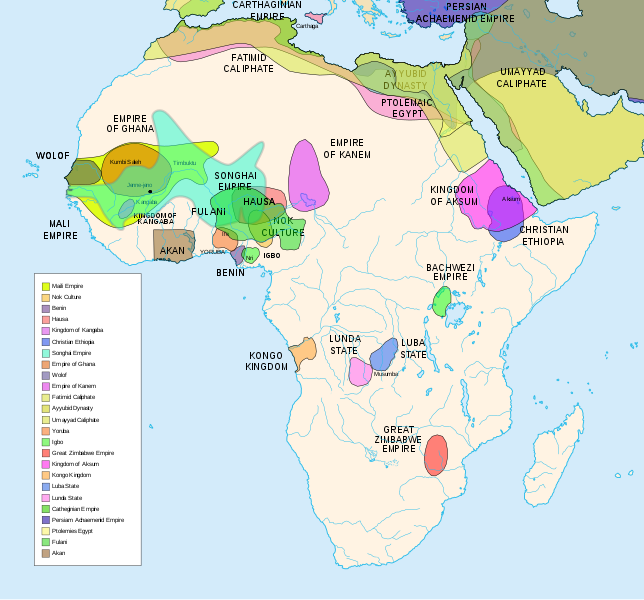Christianity, having begun in 1st Century Roman Palestine, in the next few centuries spread rapidly across the Roman Empire and beyond, including beyond the southern boundary of Roman Egypt, via the Red Sea and the Nile. The Kingdom of Axum in what is now Ethiopia under influence from missionaries from Egypt became Christian as early as in the fourth century AD, earlier than much of Europe, establishing a literate, Christian civilization with monasteries and bishops that survives in Ethiopia to this day.
However, if Christianity could spread that far south that early, at least 2 centuries before it had to contend with Islam as a rival, why did it stop there the next thousand years or more? Why didn’t it spread further into Sub-Saharan Africa until brought there by Europeans from the sixteenth century onwards?
PS Thank you TED and MA Golding for your replies. My gut reaction is that TED is basically right, that there was something to do with the level of development of a society that made it easier for it to adopt a scripture based religion like Christianity.
What is now Ethiopia was already in contact with civilizations in Arabia and the Nile Valley which probably made it different from societies further south in sub-Saharan Africa at that time, although we know little of them due to lack of written records and the limited amount of archaeology that has been done.
I do not think presence or absence of 'colonialism' is as important. Christianity in around the 4th Century managed to spread not only within the Roman Empire but to Germanic tribes beyond the frontier of the Empire like the Goths and Vandals (even if they initially adopted 'Arian' rather than Catholic Christianity), to Mesopotamia and as I have said to Ethiopia, which was never conquered by the Romans and established its own independent kingdom.
